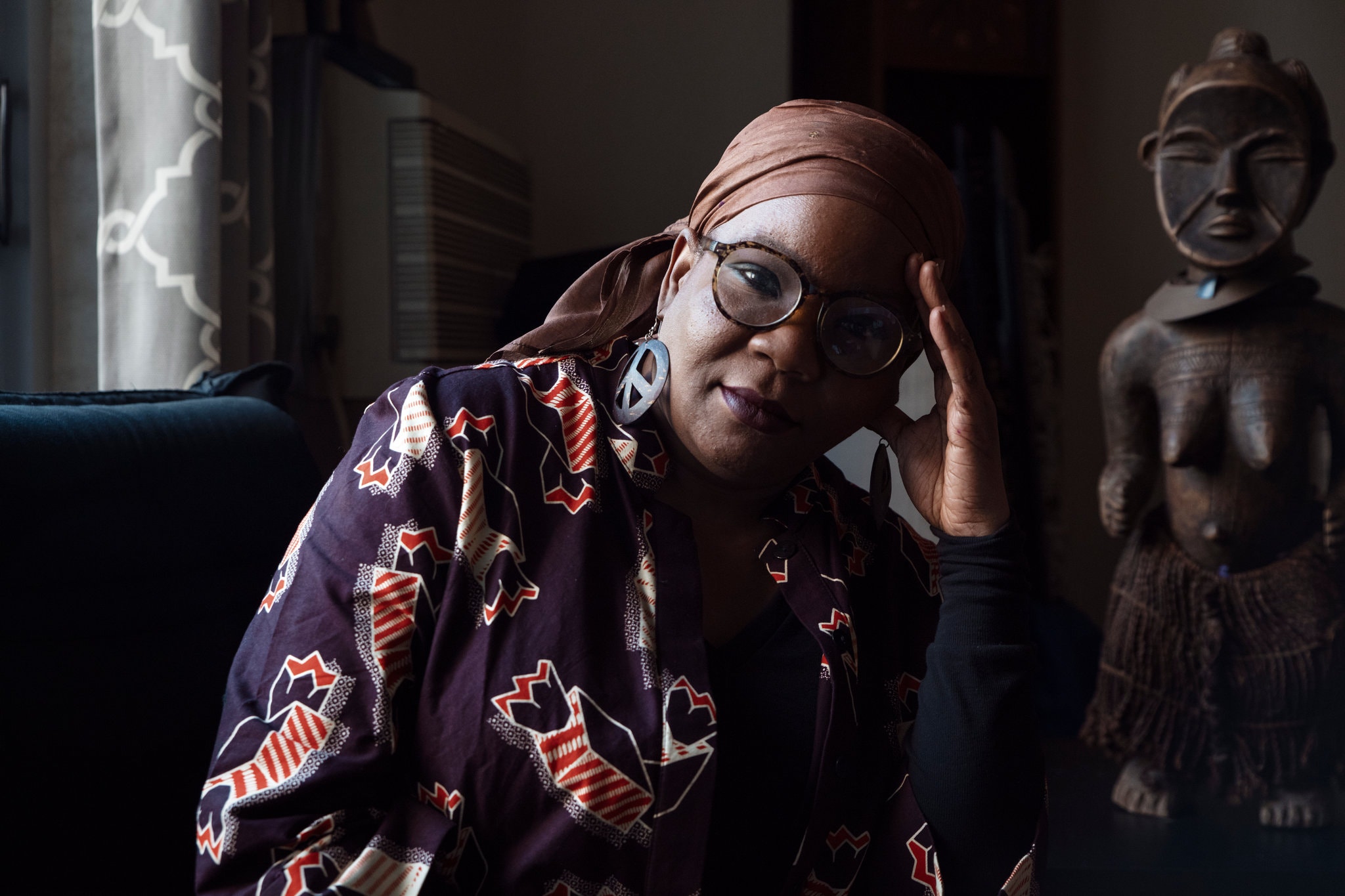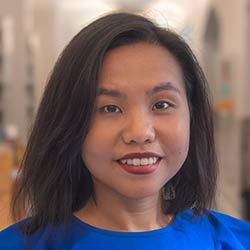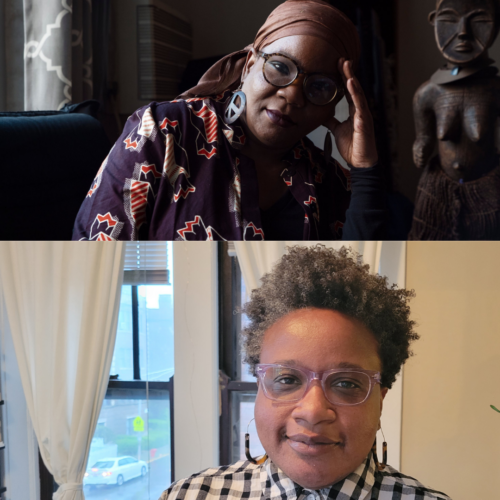
Meet the archivist: When moment meets movement
Erin is new to the world of archiving. “I actually started in the financial industry if you could believe it,” they share with a good-natured laugh. After four years of working as a bank inspector, Erin was ready for change. “I was looking for work that was meaningful to me,” they add.
It was during this crossroads of her career that Erin was getting involved in activism and attending tallis and marches at the beginning of the Movement for Black Lives I 2014. To learn more about the causes they fight for ─ racial equity, gender equity, and social justice ─ Erin turned to the archives. “I studied the history and immersed myself in the stories I found in books, records, and photos,” they share.
Understanding the importance of memory work, Erin decided to pursue a degree in library science. They graduated from the University of Illinois -Urbana Champaign in 2017. The timing could not be more apt.
“I entered the field at a time when the Black Lives Matter movement is gaining traction. It’s almost serendipitous.”
True enough, Erin brought their politics to work. As an independent archivist, they focused on work grounded on Black history and Black feminism. “I make myself available for work that invites and engages communities to document diverse histories, stories, and voices,” they explain passionately.
Coming Full circle: The archivist meets the subject
It was Erin’s conviction in their mission as an archivist and an organizer that led them to Chicago Public Library.
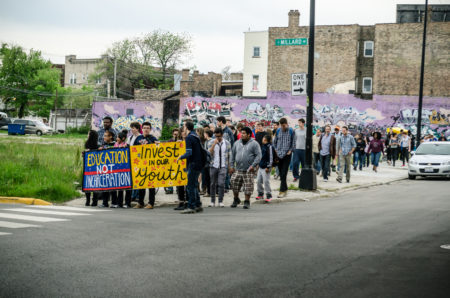
“Mariame Kaba was a major influence in my life. I listened to her speak. I followed her work. She is someone I admire.”
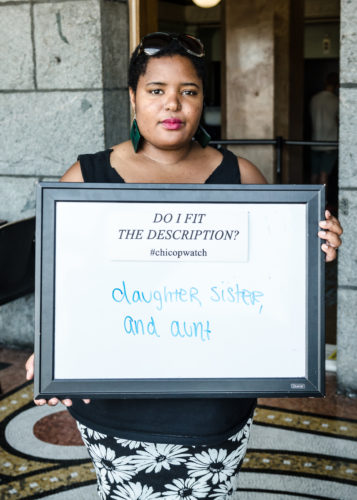
So, when CPL was looking for an archivist for Mariame Kaba’s papers, Erin jumped at the opportunity. “This is exactly the kind of work I’ve been waiting for,” they share. For seven months, Erin has gone through thousands of artifacts, documents, ephemera, photos, and records to share Mariame’s story. “Working on this project, I consistently ask myself, ‘How can I tell Mariam’s narrative in a way that is authentic to her, but will also make sense to the public?’’ Erin shares.
To archive your hero’s life puts more pressure in the work. But to process the life of a future librarian-archivist is a different kind of weight altogether. “Mariame Kaba is currently completing her degree in library science. I’m not going to lie. It is daunting to archive someone who will be an archivist herself,” Erin explains in candor.
But it does help that Mariame approves of Erin’s role in sharing her life and work, tweeting that she appreciates that Erin took on this archival work. “It’s a relief she approves,” Erin laughs.
Meet the Subject: Mariame Kaba
Mariame Kaba is a household name in Chicago. Best known for her hyphenated work as activist-author-organizer-researcher, Mariame has founded and co-founded organizations and movements rooted in dismantling the prison industrial complex, ending violence, and transformative justice. The Library collection shines a light on some of her life’s work as we dive deep into the plethora of projects she led.
Mariame Kaba’s mission to educate, liberate, and support women of color is a thread that runs through her work. In 2010, Mariame along with others revived Girl Talk, a program that worked with young women incarcerated in the Cook County Juvenile Detention Center (JTDC). Girl Talk had become a safe space for girls to express themselves through art and conversations. “These young women are resilient and strong and given different circumstances, and perhaps a different system to handle delinquency, these girls are very much capable of great things,” Kayla, a former Girl Talk member.
We also get to know Mariame during her time in the Chicago Alliance to Free Marissa Alexander. We see her commitment to bringing to light the harsh reality of Black women being criminalized for self-defense as she organized alongside thousands of volunteers.
A champion for transformative justice, Mariame Kaba founded Project NIA, a grassroots organization that promotes healing, building connections, and creating opportunities in communities as an alternative to arrest, detention, and incarceration of children and young adults.
“Young people should never end up behind bars.” – Mariame Kaba

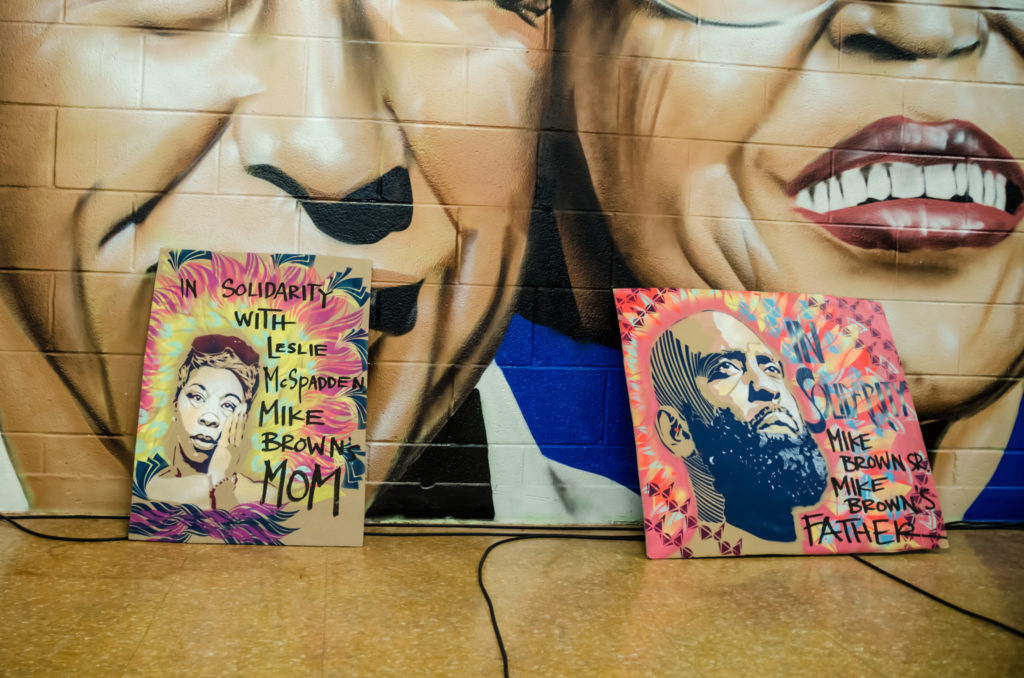
Mariame started her activism at a young age. She wrote opinion articles during her time at Northwestern University. Understanding that the future of collective action is youth-led, Mariame co-founded the Chicago Freedom School. “What makes me happiest is seeing the youth take over and expand on work that’s meaningful to them,” Mariame shares.
The school serves as a training ground for future leaders, organizers, and activists. Programs include civic engagement, leadership development, and movement building. Her mentorship has inspired so many to work towards compassionate, equitable, and sustainable strategies for social change.
A leading voice in the Police Abolition Movement, Mariame Kaba also co-founded We Charge Genocide, an inter-generational volunteer organization that serves as a platform for voices and experiences of people targeted by police violence in Chicago. In 2014, members of the movement joined hands in silent protests at a United Nations Committee against Torture in Geneva, Switzerland.
Aside from education and organizing, We Charge Genocide also supports families of those shot by the police.
Together with like-minded individuals, Mariame co-founded Chicago Taskforce on Violence against Girls and Young Women and Rogers Park Young Women Action Team, all of which you can learn at Chicago Public Library’s Special Collections.
Administrative records, banners, digital photographs, flyers, memos, program guides, and ‘zines all create an in-depth portrait of a human being who dedicated her life to creating an equitable and just society, where black people can live not in fear, but in peace, where the youth can thrive, and where women can feel safe.
Show up and do the work
Following Mariame’s life and career was eye-opening for Erin. “I know she did so much, but I didn’t realize how prolific she is─the organizations she builds, led, and coordinated. After working on this project and getting to know her through the archives, I respect Mariame Kaba a hundred times more,” they share.
Behind the speeches, the protests, and the op-eds, is a woman willing to roll up her sleeves and do the work.
“Mariame Kaba is active in all aspects of organizing work. Everything she did─big and small─was done in the service of others and of the greater community.”
Erin hopes that the Mariame Kaba collection inspires others to continue the work in a way that is just and thoughtful, keeping in mind those that are most affected.
Erin’s favorite piece in the collection? “Definitely the photographs,” Erin responds in a heartbeat. “The pictures were a beautiful compendium of the work. They capture the energy, the passion, and the love for the community,” they continue.
Erin actually appears in some of these photos. “It feels good to know that the pictures will be available in posterity, and my small part in the work is captured,” they share lightheartedly.
“As a Black archivist whose work is to make sure that the marginalized and forgotten show up in historical records and share their stories, do you feel the weight of the responsibility?” I ask. Erin smiles. “It does feel like a weight, but it’s a weight I am happy to carry,” they say. “And I’m not carrying the work alone. Mariame Kaba has given us the blueprint for how to show up and do the work,” they conclude.
You can learn more about Mariame Kaba and the snapshot of her life, work, and mission when you visit Special Collections at the Chicago Public Library. Get the latest Library news and resources when you subscribe to our free monthly e-newsletter.

